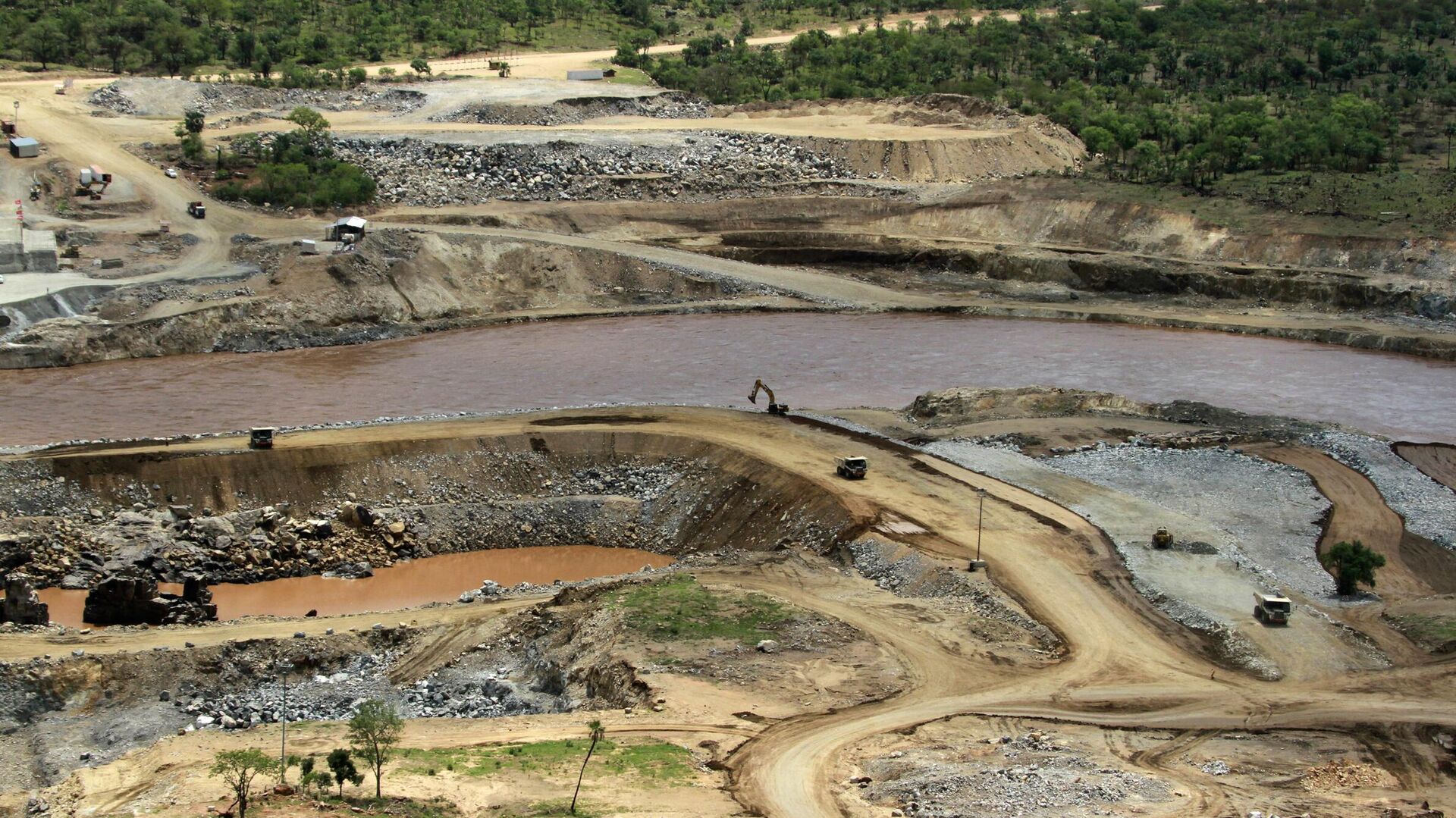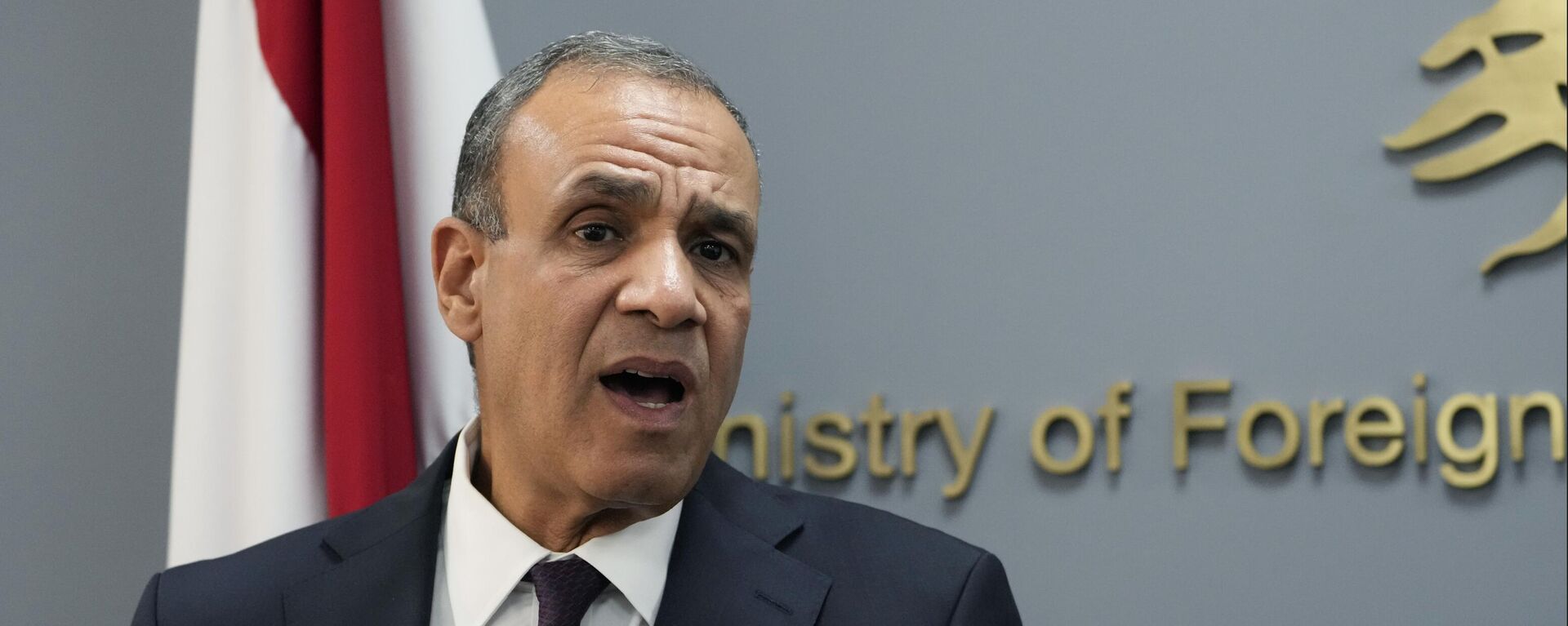https://en.sputniknews.africa/20241016/brics-could-reduce-tensions-between-egypt-and-ethiopia-russian-ambassador-to-cairo-says-1068717791.html
BRICS Could Reduce Tensions Between Egypt and Ethiopia, Russian Ambassador to Cairo Says
BRICS Could Reduce Tensions Between Egypt and Ethiopia, Russian Ambassador to Cairo Says
Sputnik Africa
Despite 12 years of negotiations between Sudan, Egypt, and Ethiopia over the Grand Ethiopian Renaissance Dam, Cairo and Khartum are concerned of the dam's... 16.10.2024, Sputnik Africa
2024-10-16T17:46+0200
2024-10-16T17:46+0200
2024-10-16T18:58+0200
international
ethiopia
egypt
brics
grand ethiopian renaissance dam
tensions
conflict
water resources
north africa
east africa
https://cdn1.img.sputniknews.africa/img/07e8/09/01/1068104774_0:124:2377:1461_1920x0_80_0_0_ff5e88304f115a9432b9dd6f519abaef.jpg
BRICS could reduce tensions between its two members Egypt and Ethiopia in terms of the Renaissance Dam, Russian ambassador to Cairo Georgy Borisenko said in an interview with Sputnik. The diplomat underscored that Moscow is friendly with two countries trying to resolve this crisis.Since 2012, Ethiopia has been implementing the major dam project on the Blue Nile. While Cairo and Khartoum fear that the filling of the dam and its operation will inevitably lead to water scarcity, Addis Ababa insists that the project is a necessity for its electrification process and development.The three countries have already held more than a dozen consultations to resolve the water sharing issues, but their efforts have remained fruitless. However, Ethiopia proceeded unilaterally and completed four phases of filling the largest hydroelectric power plant in Africa over four years without prior agreements since 2020.
https://en.sputniknews.africa/20240901/egypt-formally-requests-un-security-councils-intervention-regarding-grand-ethiopian-renaissance-dam-1068101822.html
ethiopia
egypt
north africa
east africa
horn of africa
nile river
Sputnik Africa
feedback@sputniknews.com
+74956456601
MIA „Rossiya Segodnya“
2024
News
en_EN
Sputnik Africa
feedback@sputniknews.com
+74956456601
MIA „Rossiya Segodnya“
Sputnik Africa
feedback@sputniknews.com
+74956456601
MIA „Rossiya Segodnya“
international, ethiopia, egypt, brics, grand ethiopian renaissance dam, tensions, conflict, water resources, north africa, east africa, horn of africa, nile river, water security
international, ethiopia, egypt, brics, grand ethiopian renaissance dam, tensions, conflict, water resources, north africa, east africa, horn of africa, nile river, water security
BRICS Could Reduce Tensions Between Egypt and Ethiopia, Russian Ambassador to Cairo Says
17:46 16.10.2024 (Updated: 18:58 16.10.2024) Despite 12 years of negotiations between Sudan, Egypt, and Ethiopia over the Grand Ethiopian Renaissance Dam, Cairo and Khartum are concerned of the dam's potential risks to water security in two Arab states during droughts. The dam was scheduled to begin construction in 2023, but there is still no agreement between the three countries.
BRICS could reduce tensions between its two members Egypt and Ethiopia in terms of the Renaissance Dam, Russian ambassador to Cairo Georgy Borisenko said in an interview with Sputnik.
"We know very well that the Nile is the only source of drinking water in Egypt," the ambassador said.
The diplomat underscored that Moscow is friendly with two countries trying to resolve this
crisis.
Since 2012, Ethiopia has been implementing the major dam project on the Blue Nile. While Cairo and Khartoum fear that the filling of the dam and its operation will inevitably lead to water scarcity, Addis Ababa insists that the project is a necessity for its
electrification process and development.
The three countries have already held more than a dozen consultations to resolve the
water sharing issues, but their efforts have remained fruitless. However, Ethiopia proceeded unilaterally and completed four phases of filling the largest hydroelectric power plant in Africa over four years without prior agreements since 2020.


